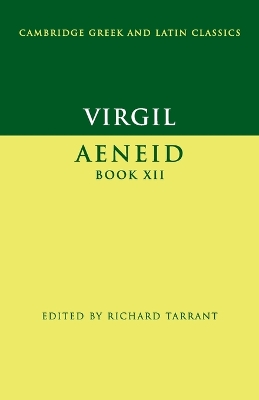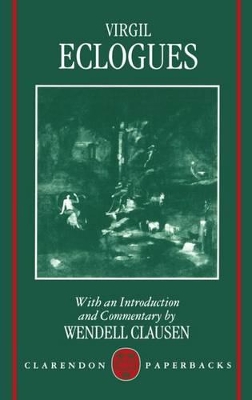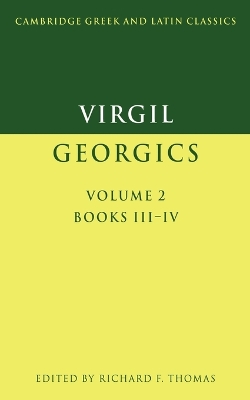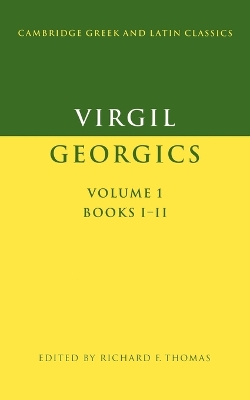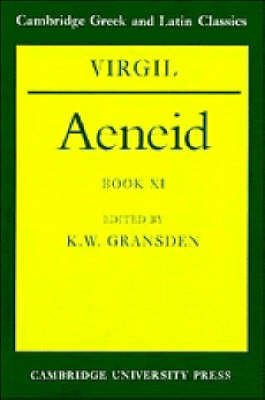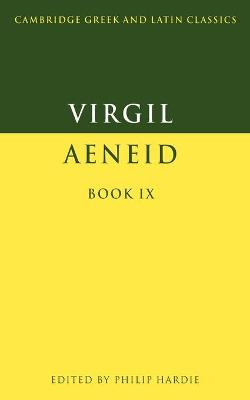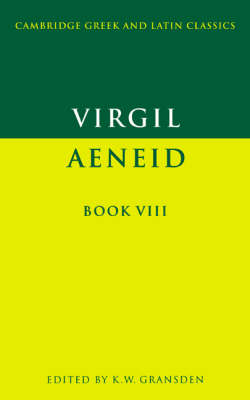Cambridge Greek and Latin Classics
7 total works
Book XII brings Virgil's Aeneid to a close, as the long-delayed single combat between Aeneas and Turnus ends with Turnus' death - a finale that many readers find more unsettling than triumphant. In this, the first detailed single-volume commentary on the book in any language, Professor Tarrant explores Virgil's complex portrayal of the opposing champions, his use and transformation of earlier poetry (Homer's in particular) and his shaping of the narrative in its final phases. In addition to the linguistic and thematic commentary, the volume contains a substantial introduction that discusses the larger literary and historical issues raised by the poem's conclusion; other sections include accounts of Virgil's metre, later treatments of the book's events in art and music, and the transmission of the text. The edition is designed for upper-level undergraduates and graduate students and will also be of interest to scholars of Latin literature.
Surprising though it may seem, this is the first full-scale scholarly commentary in English on Virgil's Eclogues. Written between about 42 and 35 BC, these ten short pastorals are among the best known poems in Latin literature. They have inspired numerous poets - Sidney, Ronsard, and others - and at the same time have held enduring fascination among scholars for their sophistaicated and allusive blend of Theocritean idyll and contemporary Roman history.
Professor Clausen's commentary will provide a comprehensive guide to the poems and the considerable scholarship surrounding them, and should be indispensable to all serious students of Virgil's poetry. Special attention is paid throughout the commentary to the important question of Virgil's use of Theocritus and other Hellenistic poets, with translations provided of all Greek passages. There are many new and illuminating observations on Virgil's poetic style and vocabulary, often with
reference to his Latin predecessors: Lucretius, Catullus and (virtually unnoticed by previous scholars) Plautus. A third feature of the commentary is a new examination of the plants and trees in the poems - both their exact identification and their significance. There are helpful introductions to each poem,
as well as a comprehensive general introduction to the Eclogues as a whole, in which Professor Clausen discusses the nature of ancient pastoral poetry, the structure of the Eclogues, and the composition of a pastoral landscape by Virgil and Theocritus.
Professor Clausen's commentary will provide a comprehensive guide to the poems and the considerable scholarship surrounding them, and should be indispensable to all serious students of Virgil's poetry. Special attention is paid throughout the commentary to the important question of Virgil's use of Theocritus and other Hellenistic poets, with translations provided of all Greek passages. There are many new and illuminating observations on Virgil's poetic style and vocabulary, often with
reference to his Latin predecessors: Lucretius, Catullus and (virtually unnoticed by previous scholars) Plautus. A third feature of the commentary is a new examination of the plants and trees in the poems - both their exact identification and their significance. There are helpful introductions to each poem,
as well as a comprehensive general introduction to the Eclogues as a whole, in which Professor Clausen discusses the nature of ancient pastoral poetry, the structure of the Eclogues, and the composition of a pastoral landscape by Virgil and Theocritus.
This volume, the second of two companion volumes which provide a detailed commentary, with text, on the whole of Virgil's Georgics, is devoted to Books III and IV of the poem. Professor Thomas describes the Georgics as 'perhaps the most difficult, certainly the most controversial, poem in Roman literature'. He presents the Georgics as the finished poem of Virgil's mature years, approaching it not merely as a part of the tradition of didactic poetry, but rather as a work which confronts, behind its generic appearance, issues not essentially different from those which inform the Eclogues and Aeneid. His introduction (in Volume 1 only) and Commentary argue that Virgil's agricultural world, with its successes, failures and ultimate limitations, represents the arena for man's struggle with the realities of existence. Professor Thomas pays particular attention to Virgil's allusion to and reshaping of prior Greek and Latin poetry. The Introduction also covers stylistic, metrical and structural questions. A subject index and indexes of important Greek and Latin words conclude each volume, the indexes in this volume covering the whole work. This edition is aimed primarily at students at university and in the upper forms of schools, but the range of its scholarship means that it will be valuable to all classical scholars. The Introduction contains material for non-classicists interested in Latin literature.
This volume and its companion volume devoted to the second half of the poem provide a detailed commentary, with text, on the whole of Virgil's Georgics. Professor Thomas describes this work as 'perhaps the most difficult, certainly the most controversial, poem in Roman literature'. He presents the Georgics as the finished poem of Virgil's mature years, approaching it not merely as a part of the tradition of didactic poetry, but rather as a work which confronts, behind its generic appearance, issues not essentially different from those which inform the Eclogues and Aeneid. His introduction and Commentary argue that Virgil's agricultural world, with its successes, failures and ultimate limitations, represents the arena for man's struggle with the realities of existence. Professor Thomas pays particular attention to Virgil's allusion to and reshaping of prior Greek and Latin poetry. The Introduction also covers stylistic, metrical and structural questions. A subject index and indexes of important Greek and Latin words conclude each volume. This edition is aimed primarily at students at university and in the upper forms of schools, but the range of its scholarship means that it will be valuable to all classical scholars. The Introduction contains material for non-classicists interested in Latin literature.
Book XI of the Aeneid covers four crucial days in Aeneas' struggle against the Latins. In it, Virgil gives us the funeral of Pallas, the great Latin war-council, Turnus' plan to ambush Aeneas and the aristeia and death of Camilla K. W. Gransden sees the second half of the Roman national epic as 'Virgil's Iliad'. In his introduction and commentary, he relates the themes and structure of Book XI not only to the rest of the Aeneid but also to relevant passages in the Iliad. Gransden shows how, despite his adoption of the epic form, Virgil's style is influenced by Alexandrian miniaturism, Callimachean theory, and the poetry of the neoteroi. In addition to questions of style and interpretation raised in the commentary, there are sections in the introduction covering the Virgilian hexameter and narrative technique.
Aeneid IX marks the beginning of the full-scale narrative of the war between the Trojans and Turnus' Italians which occupies the last quarter of the epic. Two days during which Turnus launches a siege-assault on the Trojan camp while Aeneas is absent are separated by the nocturnal interlude of the ill-fated expedition of the romantic young Trojans Nisus and Euryalus. In this, the first major single-volume commentary in English on the book, Dr Hardie explores Virgil's transformation of Homeric models of battle narrative in the service of contemporary Roman ideology. The volume includes a detailed linguistic and thematic commentary on the text, and an introduction consisting of a series of interpretative essays on the book.
Book VIII is one of the most attractive and important books of Virgil's Aeneid. It includes the visit of Aaneas to the site of the future Rome, the story of Hercules and Cacus, the episode between Venus and Vulcan and the description of the great symbolic shield of Aeneas. Mr Gransden's introduction relates this book to the Aeneid as a whole considers the text in various aspects: the topography, Virgil's sense of history, his typology and symbolism, his literary style and his influence on subsequent vernacular poetry. The commentary discusses points of special interest and difficulty in interpretation, style and prosody and gives detailed explanation of the many allusions in Book VIII to customs, legends, traditions and historical events. This is primarily a textbook for university students and sixth-formers, but it also contains material which may be of interest to students of English and comparative literature.
